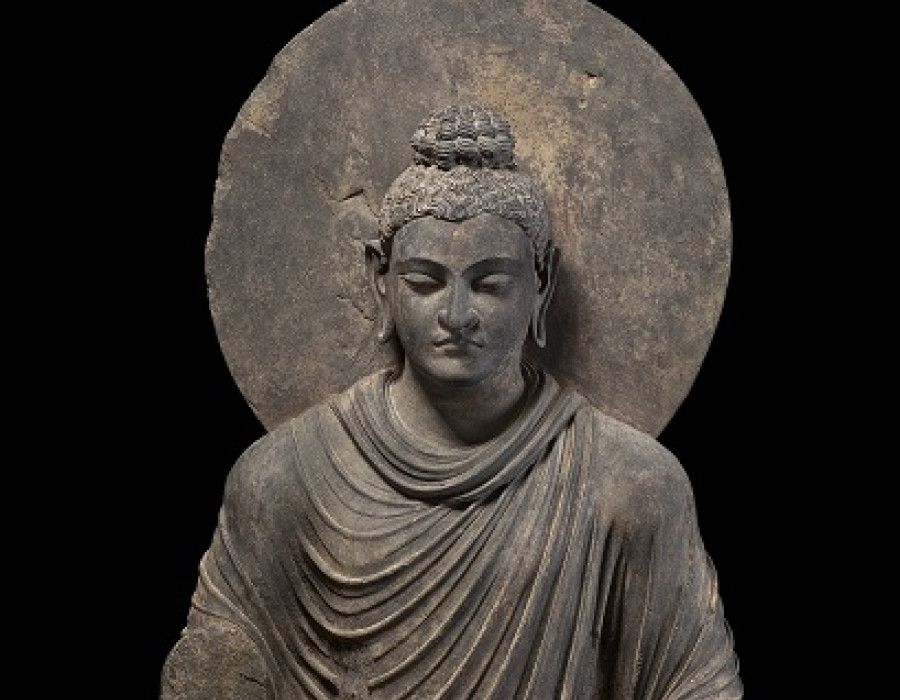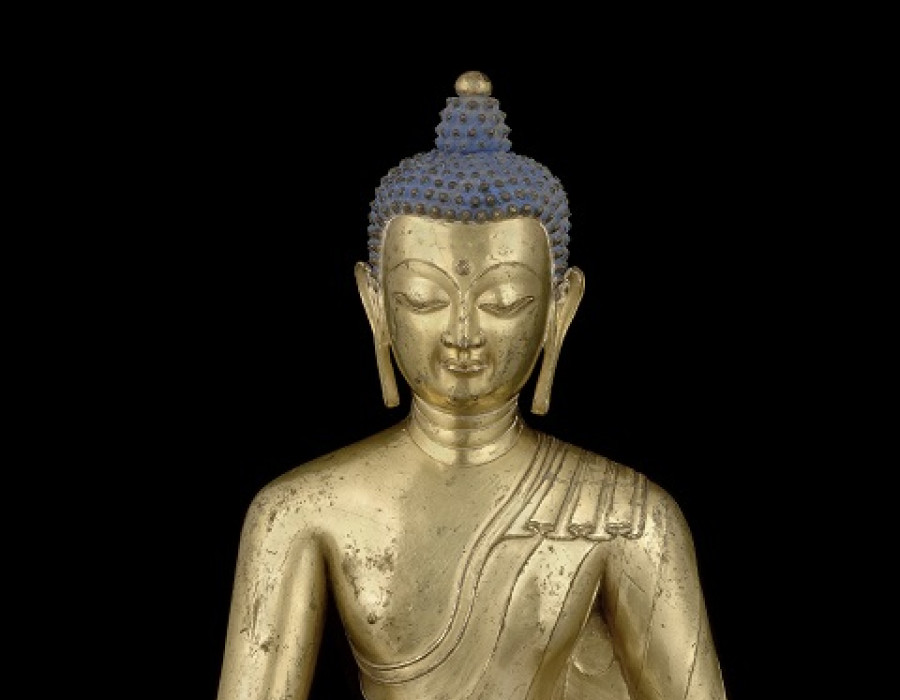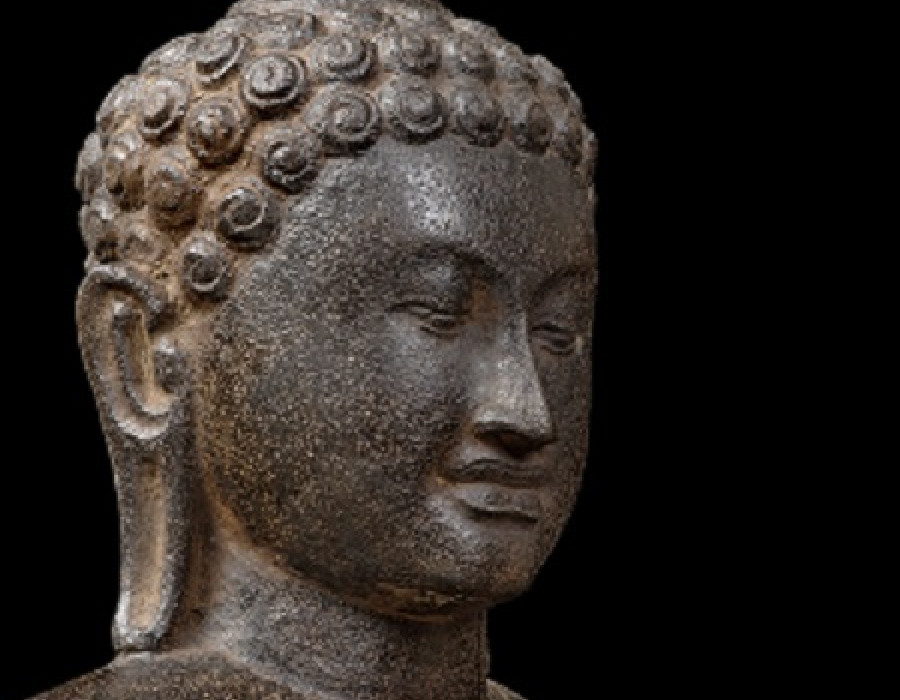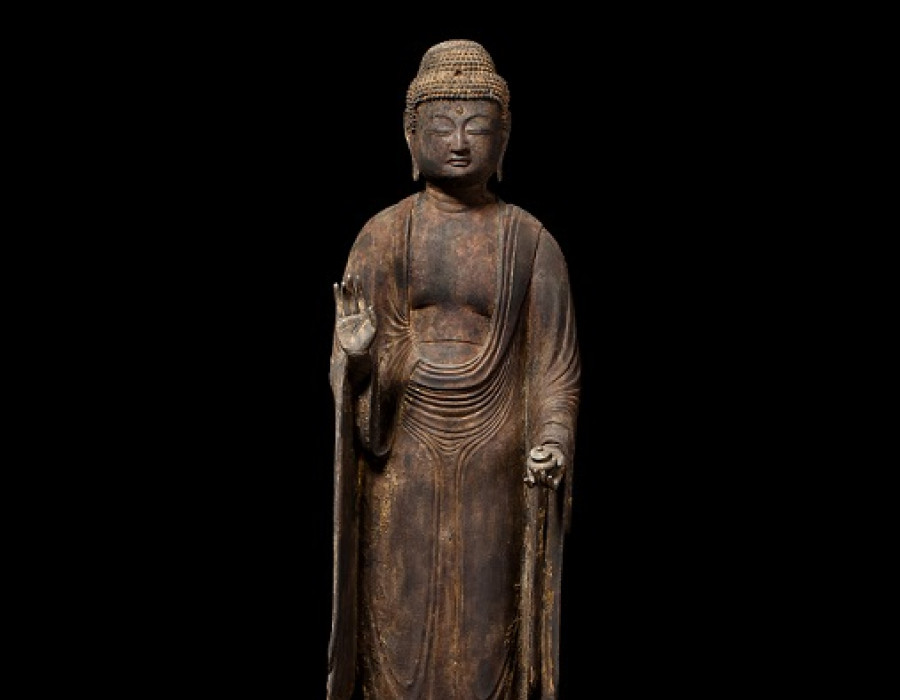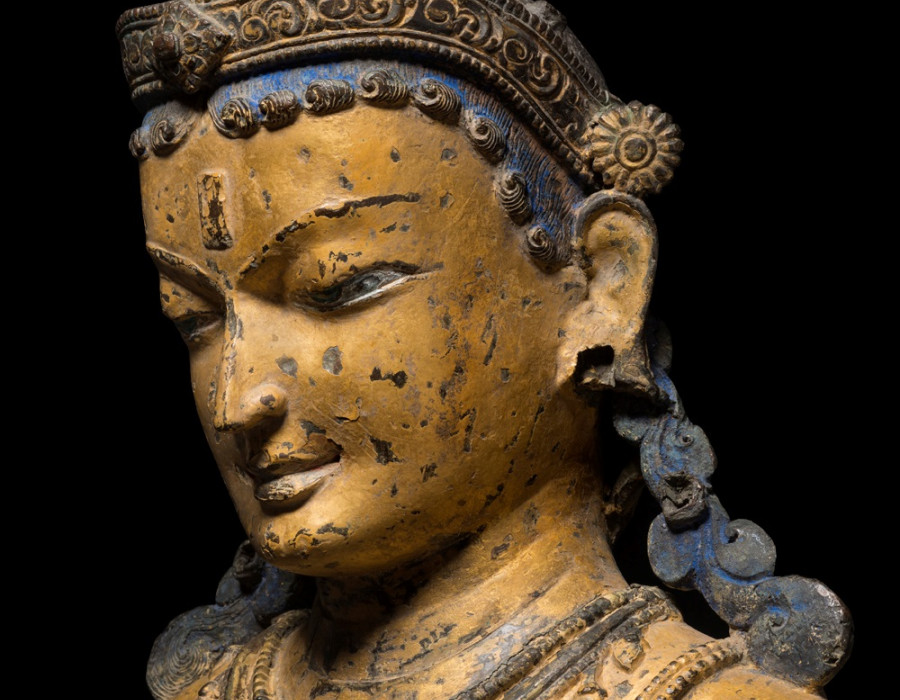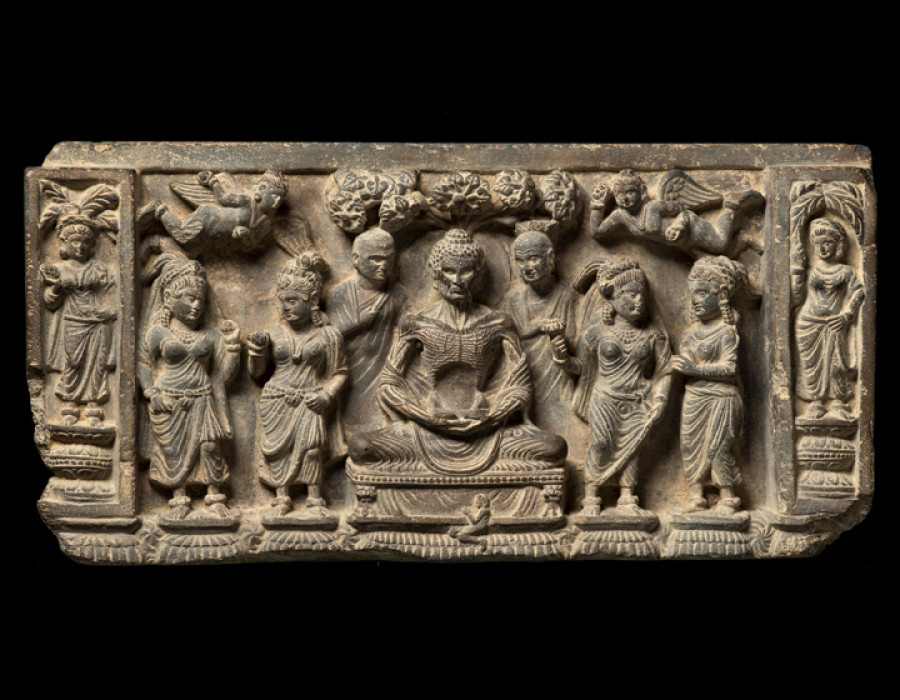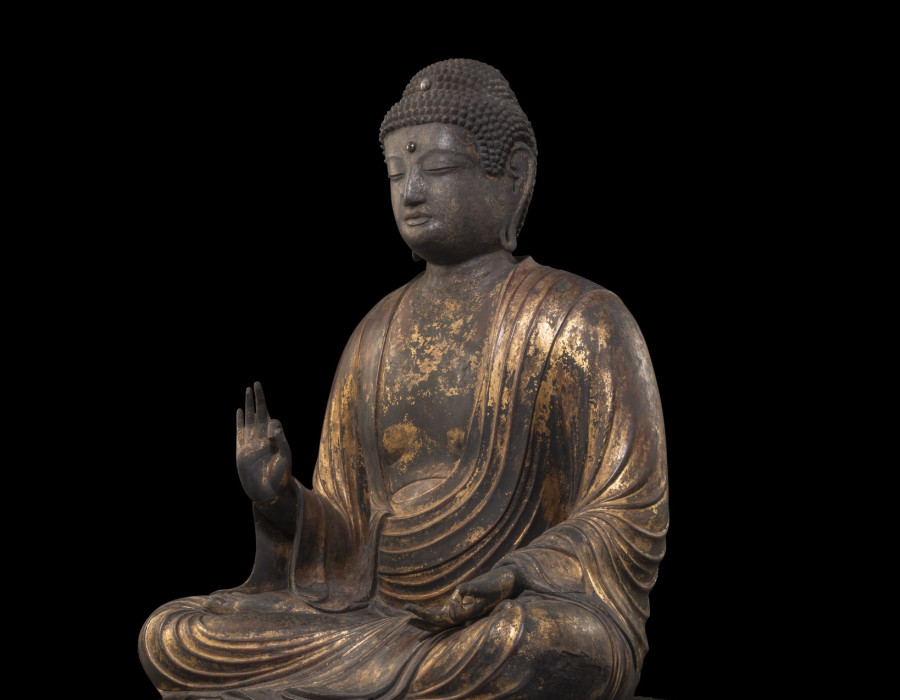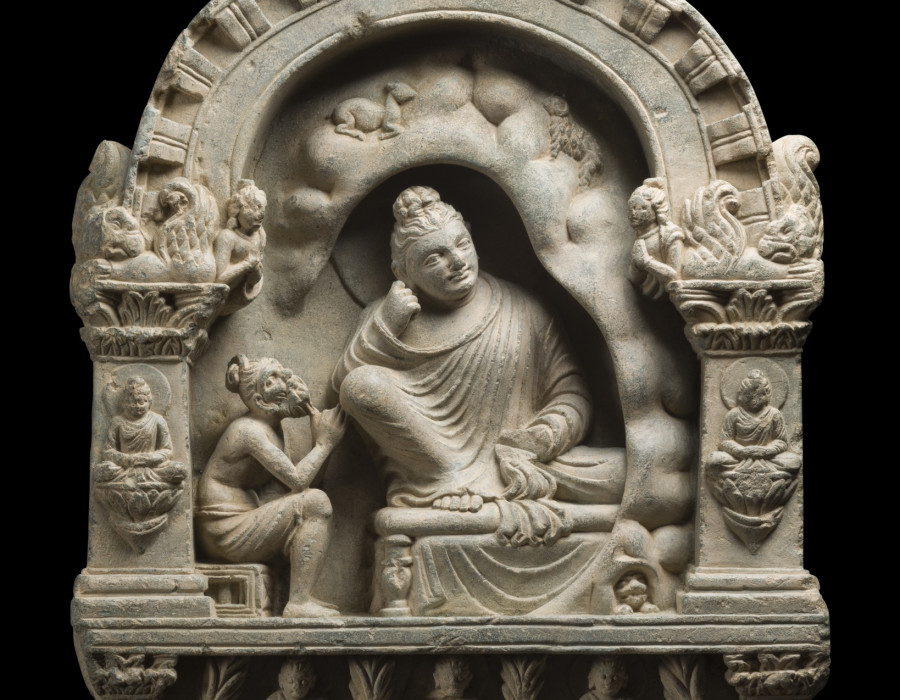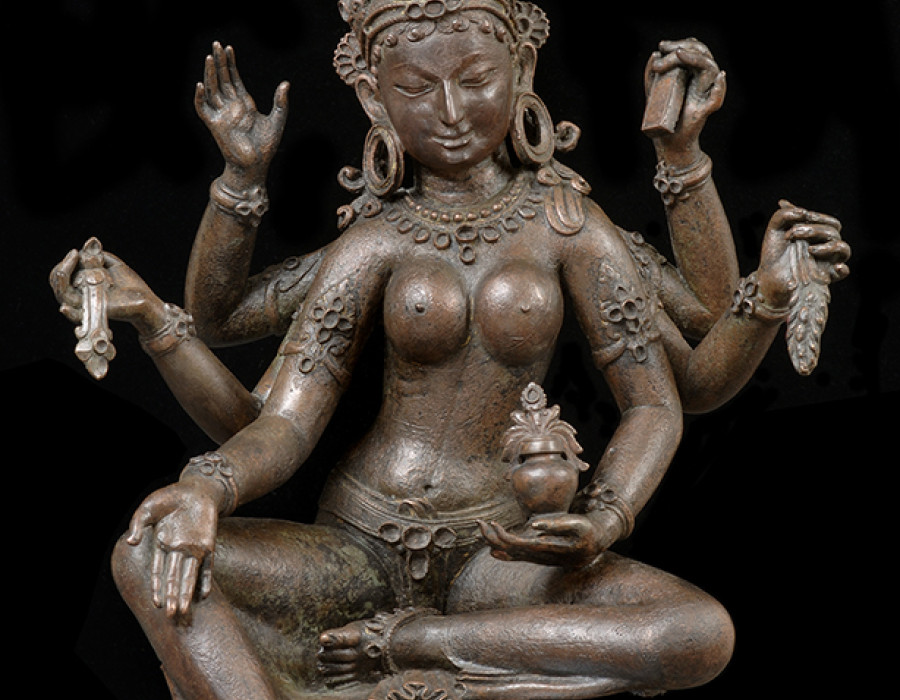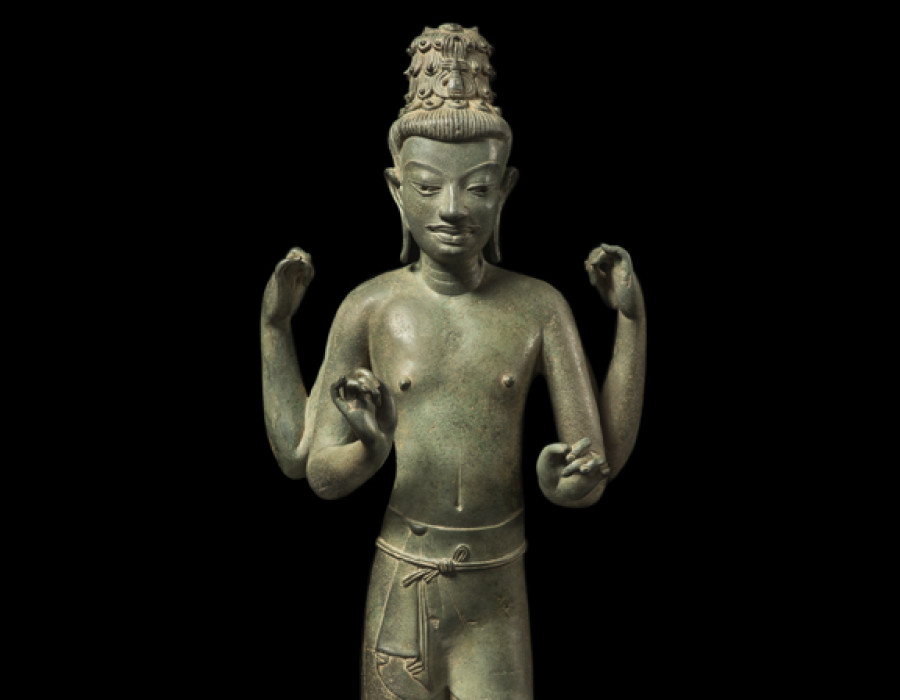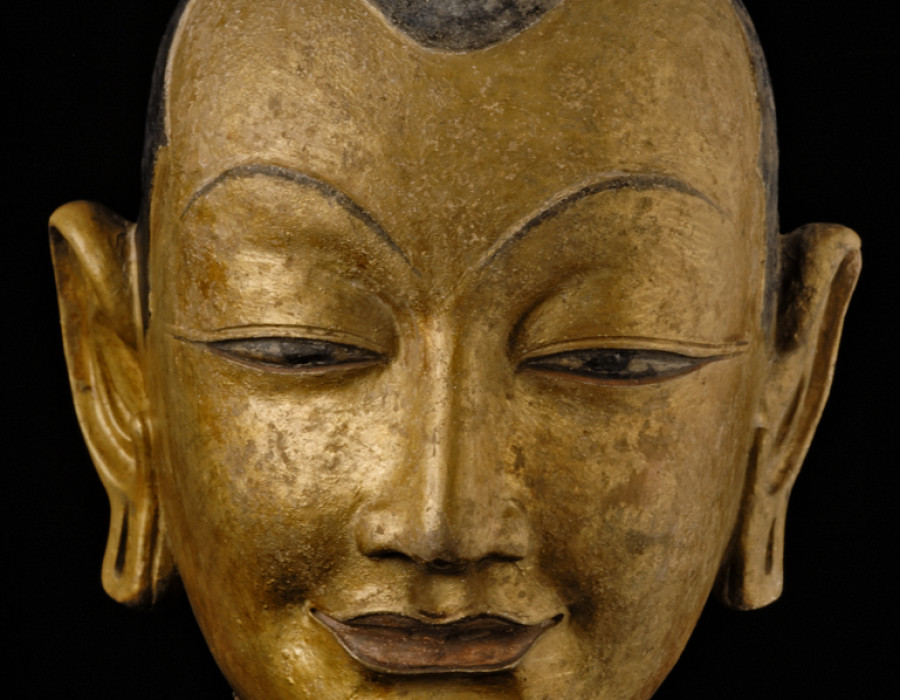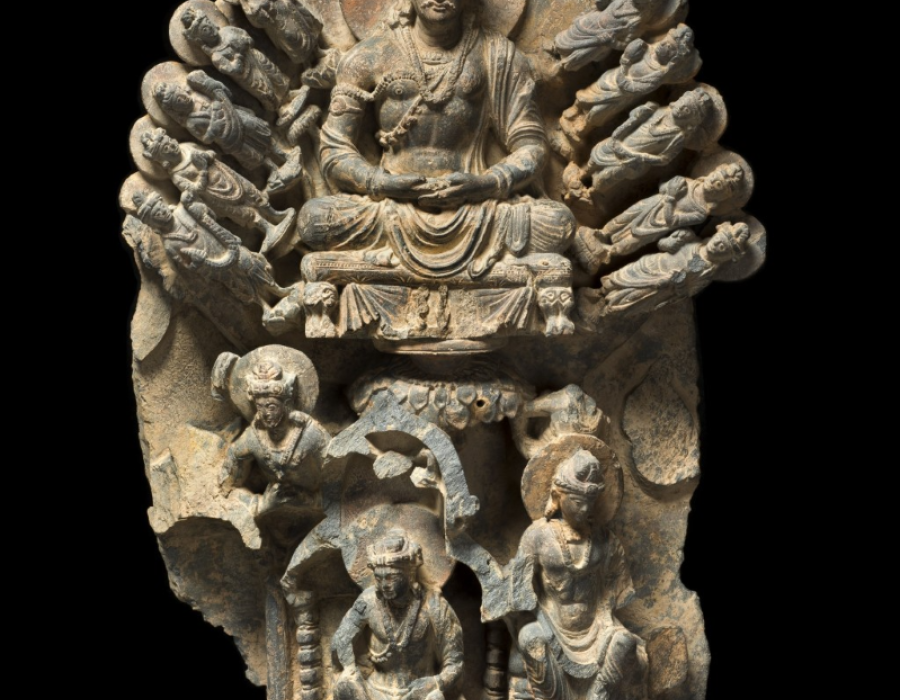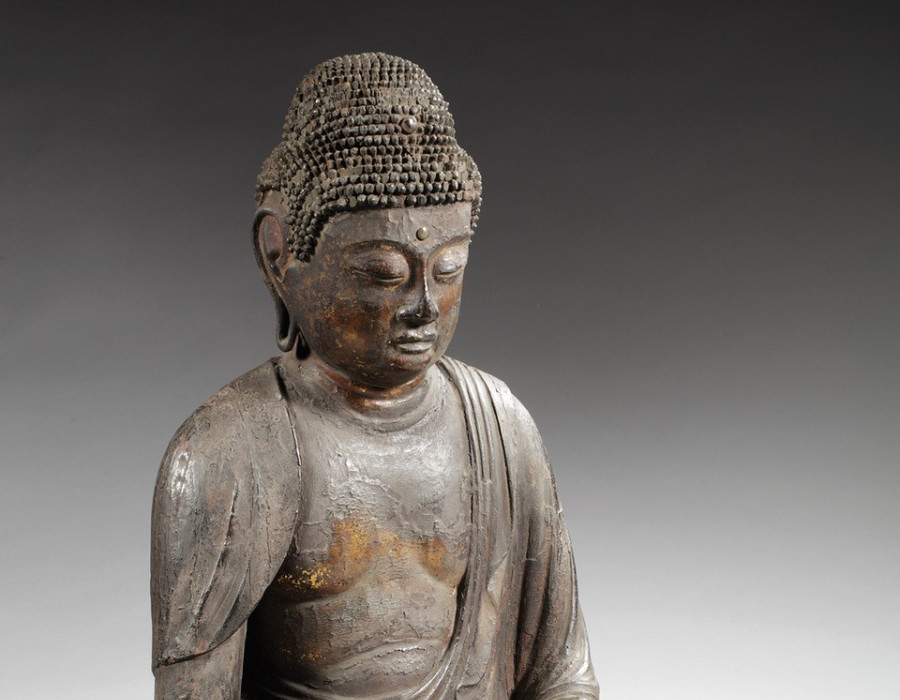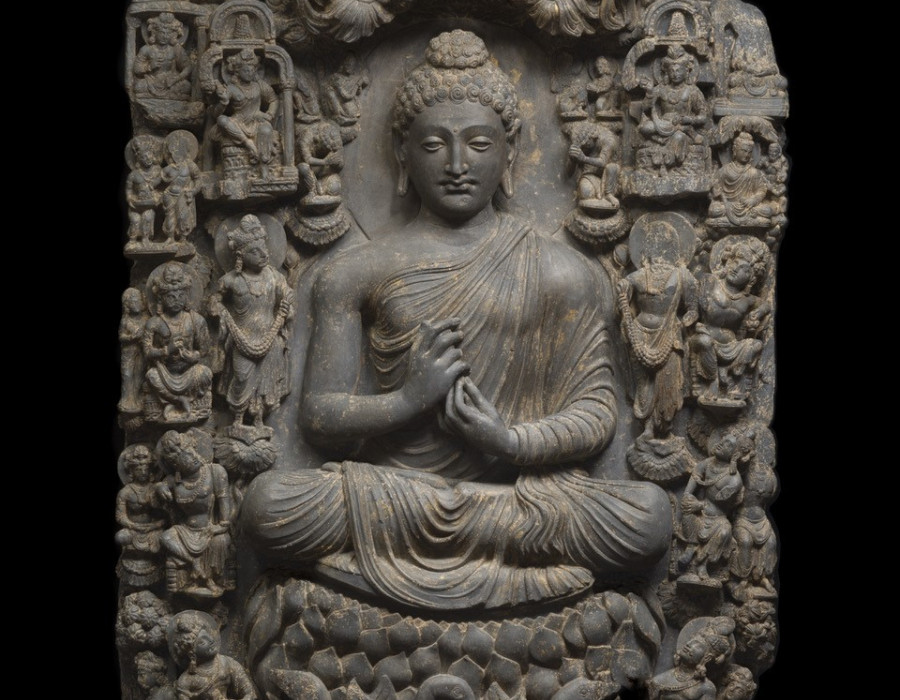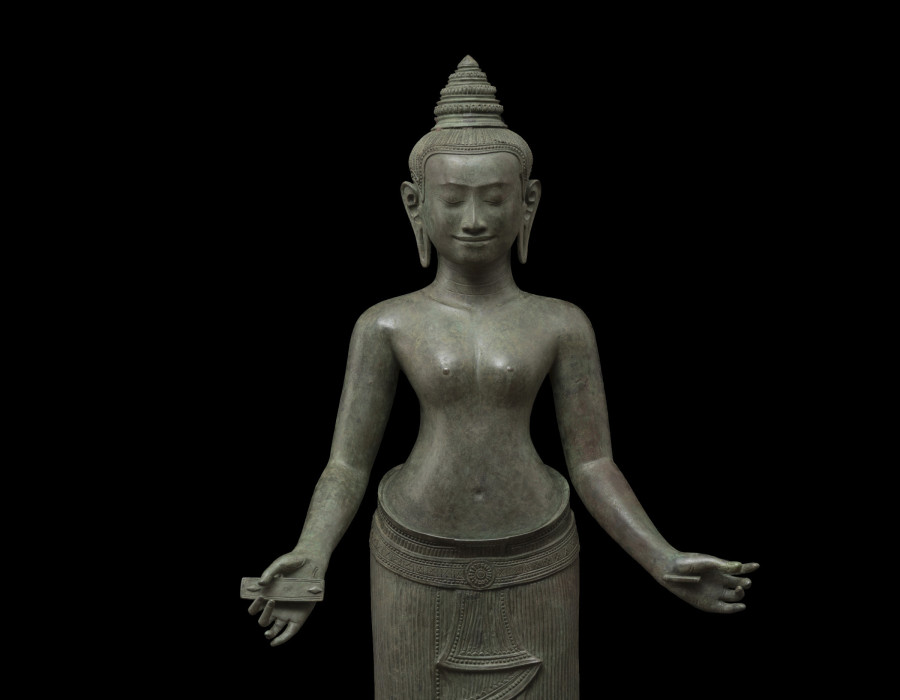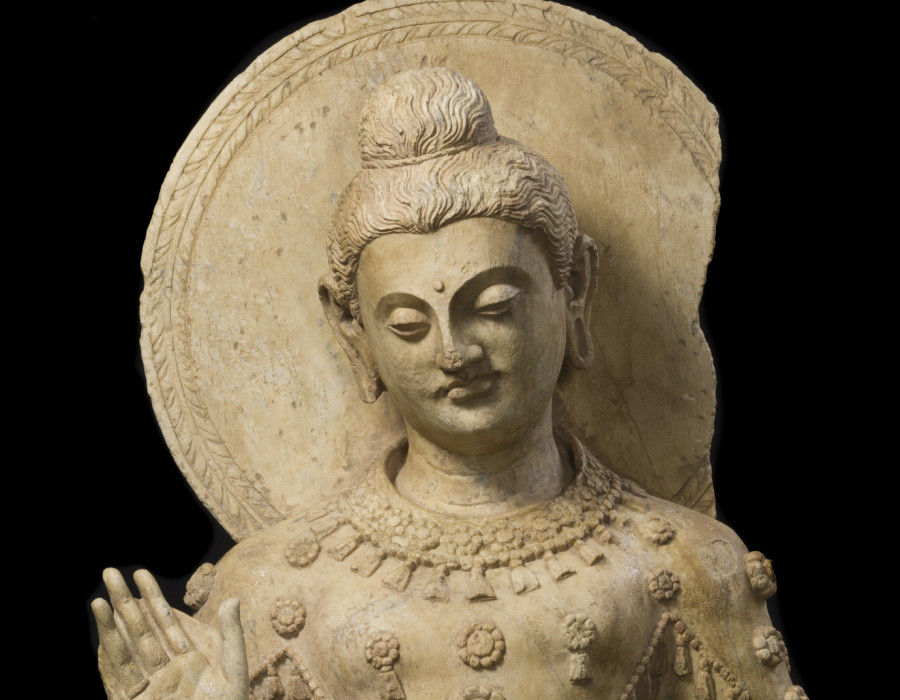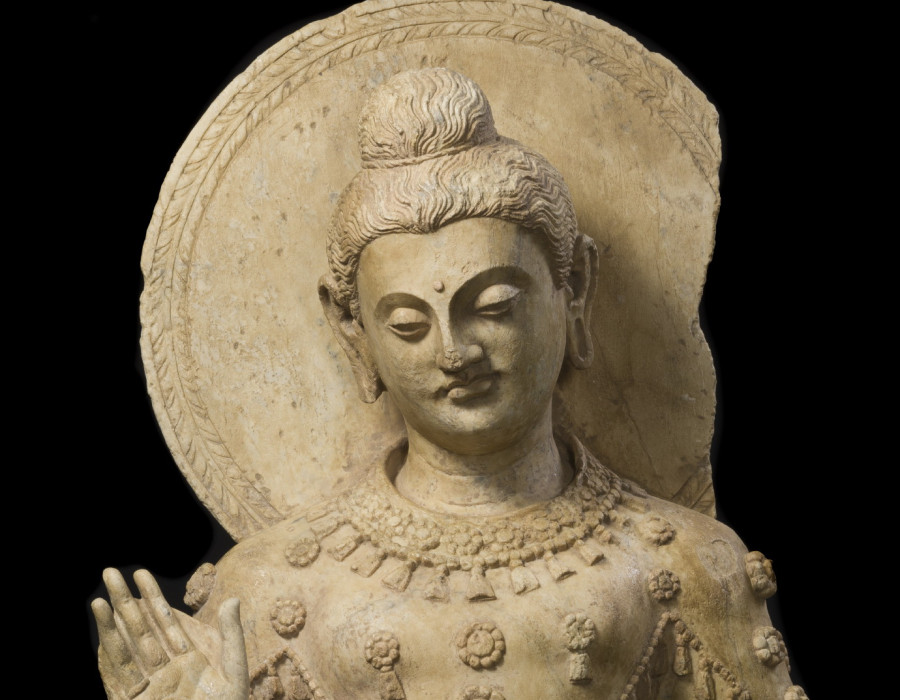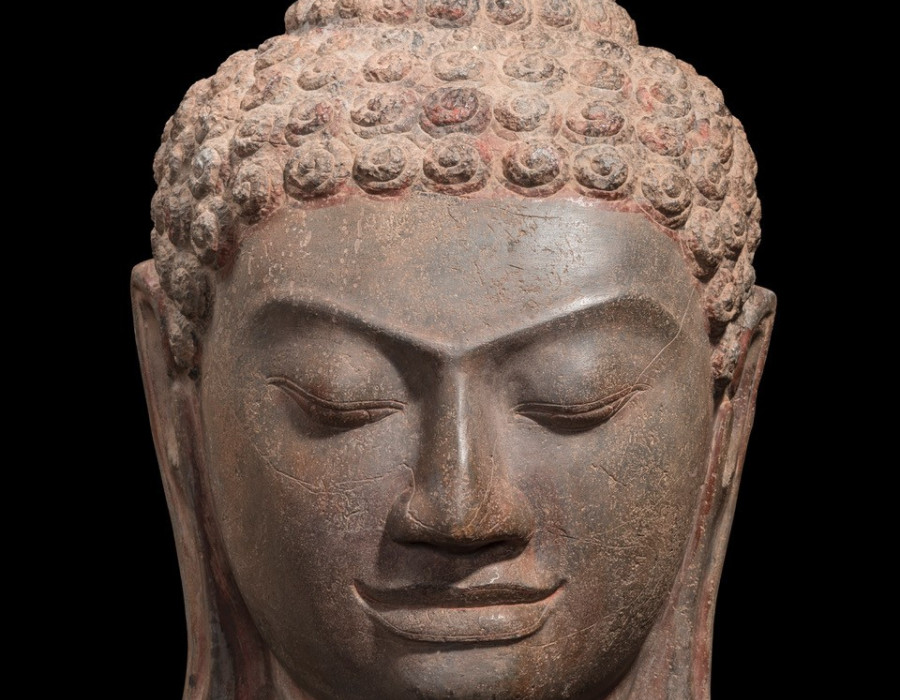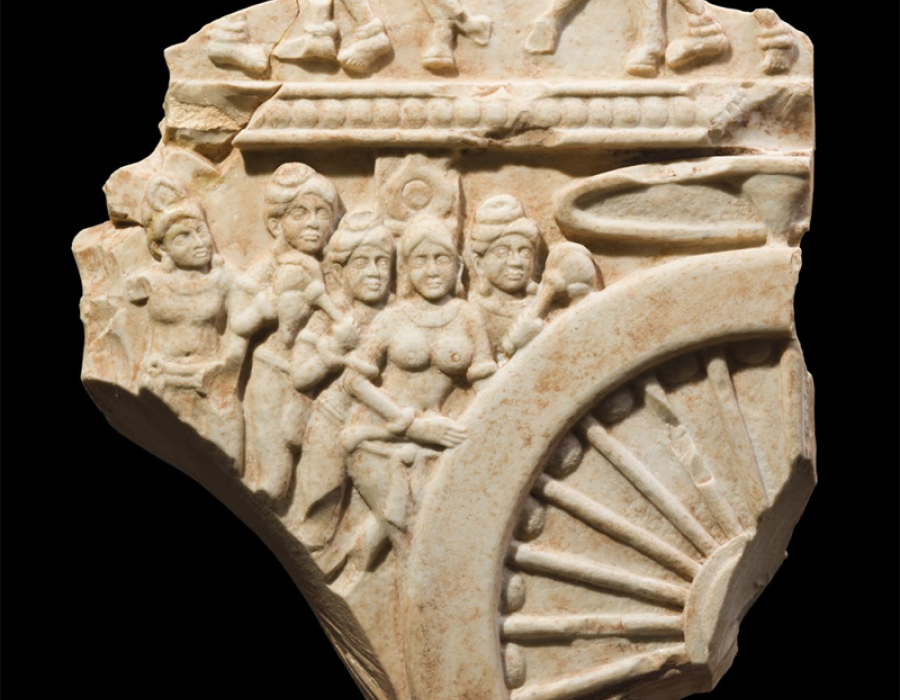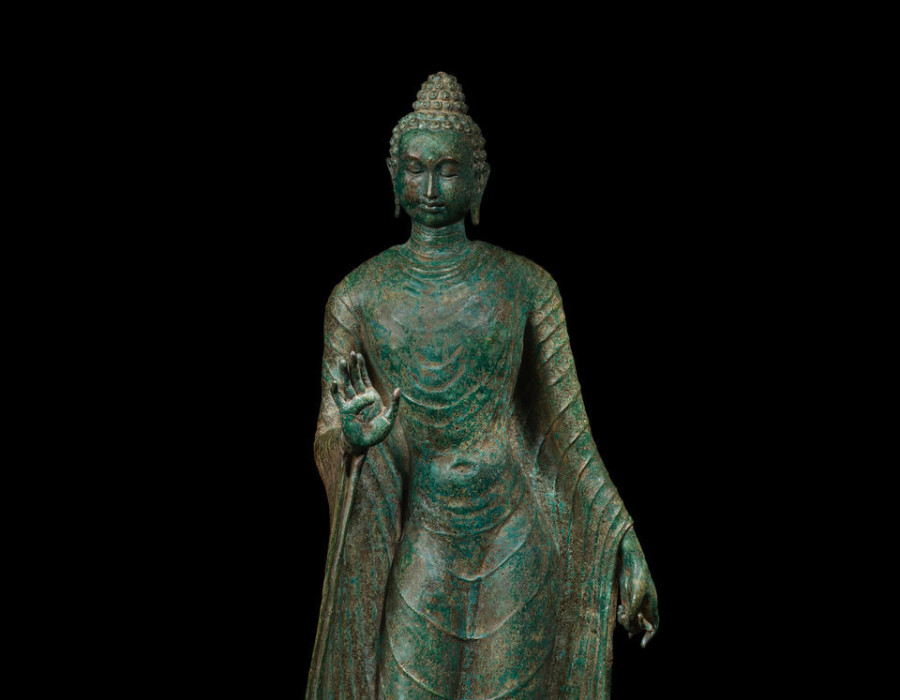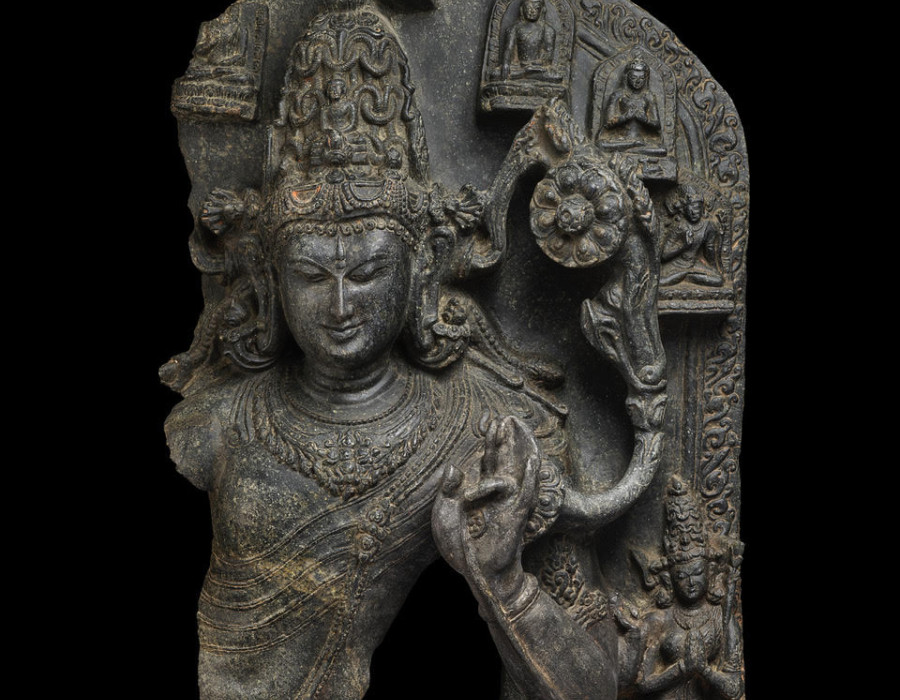Images of Truth: Emaciated Buddha Frieze 3rd Century
The high holidays can be a time of excess. This frieze of the Great Bodhisattva during his time of asceticism reminds us of the superhuman efforts he made to reach Enlightenment.
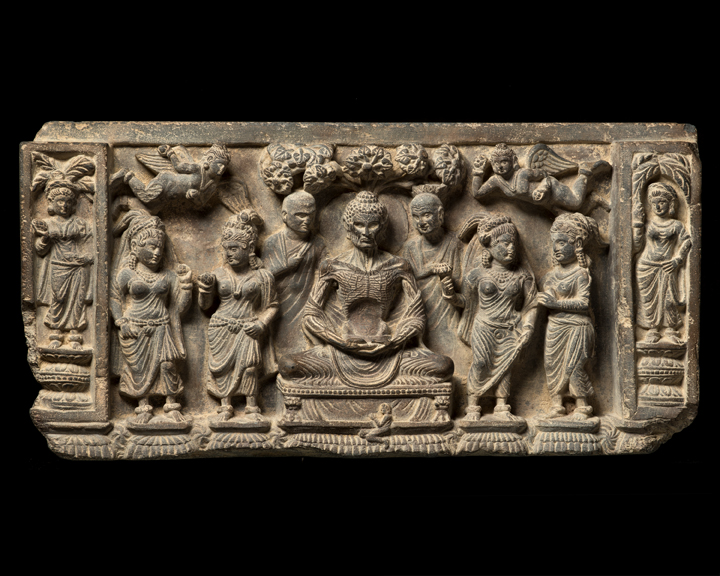
Emaciated Buddha Swabi Region 3rd century
The frieze depicts an event described in Chapter 17 of the Lalitavistara Sutra, a text that was probably compiled in the 3rd century CE from a number of earlier works, describing the Life of the Buddha up to the point of his First Sermon. Depicted here is the moment when, having been informed by worried deities of the state the Bodhisattva has reduced himself to, Mayadevi descends from the Trayastrimsha Heaven to plead with him to break his fast. She reminds him of his first words, soon after his birth, when he predicted that he would be a Buddha and suggests that he will die of starvation before achieving his intent. The Bodhisattva informs his mother that he will succeed in his quest as his fate has been predicted by Dipamkara and reassured, she returns to Heaven.
One of the most powerful Buddhist images, the Emaciated Bodhisattva form probably originated in Gandhara. Although it has become one of that region's definitive sculptures, it was always quite unusual and is more frequently seen in freestanding statues than in narrative friezes. This exceptionally rare frieze probably emanates from the Swabi region, now Pakistan, and it can be dated to the 3rd century.
...
These divine sons then went to the gods in the Heaven of the Thirty-Three and told
Māyādevī: “It seems that the young Prince is about to pass away.”
Māyādevī surrounded herself with a retinue of divine maidens, and at midnight
they went to the bank of the Nairañjanā River where the Bodhisattva was staying.
She saw how thin the Bodhisattva had become, and it appeared as if he had died.
Upon seeing this, she was choked with tears and began to weep. She then sang these
verses:
“When I gave birth to you, my son, in the Lumbinī Grove,
Without support, like a lion, you took seven steps on your own.
You gazed in the four directions and said these beautiful words:
‘This is my last birth.’ Those words will now never come to pass. [253]
“Asita predicted that you would be a buddha in this world,
But his prediction was wrong, as he did not foresee impermanence.
My son, you have not yet had the joys of a universal monarch’s splendors,
And now you are passing away in this forest without attaining awakening.
“To whom can I turn to about my son?
To whom shall I cry out in my pain?
Who will give life back to my only son,”
Who is barely alive?
The Bodhisattva answered:
“Who are you? You cry so heart wrenchingly,
With disheveled hair and your beauty impaired,
Lamenting your son so intensely
And throwing yourself on the ground.”
Māyādevī replied:
“It is I, your mother, O son,
Who for ten months
Carried you in my womb like a diamond.
It is I who now cry out in despair.”
Then, in order to console her, the Bodhisattva told her: “As for grieving for your son,
there is no need to worry; your hardship will pay off. Renouncing the world for the
sake of awakening is indeed meaningful. What the priest Asita predicted shall come
true. Likewise the prediction of Dīpaṃkara shall come to pass.
“It is possible that the world may break into a hundred pieces, and the jewel peak
of Mount Meru may fall into the ocean. The sun, the moon, and the stars may fall to
the ground. Yet although I am an ordinary person, I will not die. Therefore do not
bring misery on yourself. Before long you shall behold the awakening of a buddha.”
As soon as Māyādevī heard this, she became overjoyed, and the hair on her body
stood on end. Sprinkling the Bodhisattva with māndārava flowers, she circumambulated him three times. Then, accompanied by heavenly music, she went back to her
abode.
Images of Truth
Buddhist art and iconography

